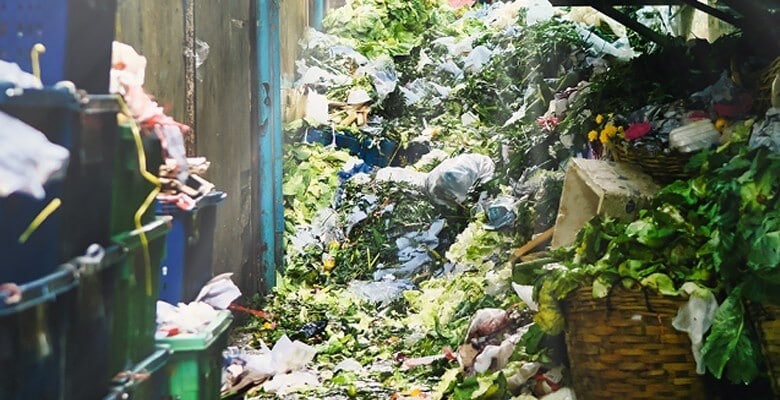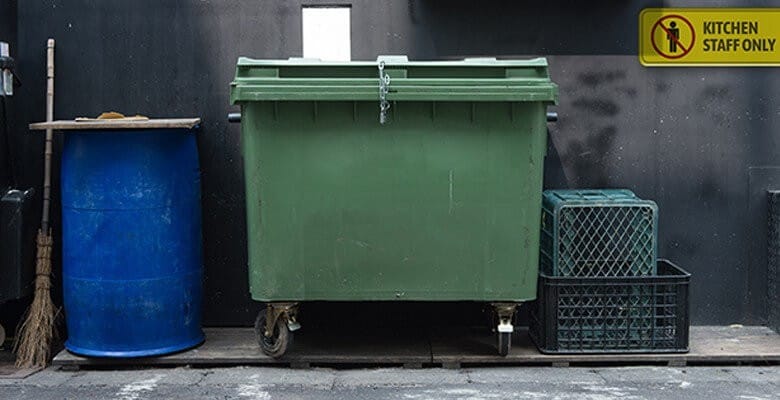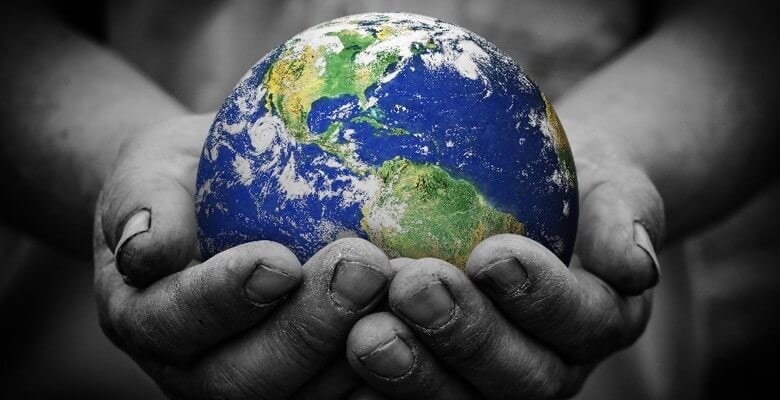Waste is inevitable — at least in virtually every sort of business. However, environmental-friendly and cost-effective waste disposal depending on your business's requirements can be difficult and can create problems for business owners and operators in the long run.
In this article, we will discuss everything you need to know about waste management, its different types and techniques, and its advantages to help business owners address their own waste issues — may it be through proper kitchen waste management techniques or other types of food waste solutions.
What is waste management?
Waste management goes beyond the simple segregating of one's trash.
In a nutshell, it is the proper collection and disposal of trash, sewage and all sorts of garbage produced mostly by human activities. More than the typical biodegradable vs. non-biodegradable categories, waste management allows people to consume responsibly and ensure that leftovers and other waste products are properly taken care of. This way, we decrease production and consumption and reduce the risks of merely dumping trash all in one area, not further contributing to the damaging of the environment, such as intoxication, poisoning, and many more.

What are the Different Types of Waste?
To ensure proper waste management, you need to know the kind(s) of rubbish you're dealing with. Waste is basically broken down into seven (or more) different types. From simple kitchen leftovers to toxic substances, here are the different types of waste:
1. Liquid / Solid Household Waste
Also known as 'black bag waste' (or 'municipal waste'), liquid or solid household waste are the types of by-product rubbish that are generally produced in one's home.
These wastes can be as simple as plastic wrappers, tissue papers, leftover cooking oil, and more. As the name suggests, household wastes can either be liquid or solid, as long as it does not contain any extremely harmful substances that can be detrimental to anyone's health.
2. Electrical Waste (e-Waste)
Electrical wastes (also called e-waste) are the types of leftover items generated from appliances and other kinds of electrical devices, such as computers (and their parts), music and DVD players, printers, television sets, cellphones and other gadgets, and so on. Compared to household wastes, e-wastes contain toxic metals and other elements. These include lead, flame retardants, mercury, and other substances that may be harmful if not handled with care.
3. Green Waste
Green waste isn't necessarily green-colored items. These waste products come from food, landscaping and gardening, which will eventually break down under the right conditions. Examples of green wastes include grass and weeds, tree branches, fruit and vegetable produce rubbish, paper products, bread and grains, and the like. Green waste can be used for gardening techniques or compost making as well.
4. Biomedical or Clinical Waste
Biomedical waste (also known as medical, pharmaceutical or clinical waste) are waste products generated by pharmaceutical centers such as clinics, hospitals, health care centers, veterinary clinics, and even just at home (assuming there is a patient undergoing homecare). This type of waste can be hazardous if in contact with humans. Hence, it should be disposed of properly. Examples of clinical waste include syringes, the cotton used in surgeries, fluids sourced from humans, medicines, blood-infused items, and so on.
5. Recyclable Waste
As the name implies, this type of waste can be recycled and converted into reusable material. Recyclable wastes are mostly found in household garbage, such as cardboard, papers, food and beverage containers, glass, metal, etc.
6. Construction Waste
Construction waste (or demolition debris) is actually one of the highly recyclable wastes that should be disposed of and segregated correctly. These usually heavy and dusty materials are leftovers or excess from construction activities, renovation projects, or general home service activities. Examples include hollow blocks, plumbing fixtures, carpeting, ceiling tiles, wood carvings and shreddings, bricks, concrete, bricks, and many more.
7. Hazardous Waste
Hazardous wastes refer to dangerous materials regulated by the federal government. These include pharmaceuticals, solvents, mercury, aerosol cans and paints, and many more. Like biomedical or clinical wastes, this type of waste may be toxic, reactive and inflammable and can create serious public health issues.
What are the Different Types of Waste Management Techniques?
Now, how do we deal with waste? The easiest way, both economically and environmentally, is not to create it in the first place. Listed below are some of the waste management techniques that are considered more sustainable than landfill or dumpsite disposal strategies:
- Waste Reuse. Using a material more than once for the same function is called conventional reuse while using an item for different purposes is called new-life reuse. A good example would be concrete — a type of demolition debris reused as a base for roads.
- Waste Minimization. This is the method of reducing the amount of waste produced by an individual or a corporation. It's about how the goods and services people rely on are manufactured, purchased and sold, consumed and disposed of.
- Waste Recycling. Also known as material recovery, this technique involves reprocessing specific waste materials (including electronic waste) to be used as raw materials in another process. The best example of waste recycling is composting.
Waste-to-Energy. Processes involved in waste-to-energy techniques include RDF and mass-burn incineration, anaerobic digestion, gasification and pyrolysis.


Why Should Businesses Practice Waste Management?
From food waste management in restaurants to construction debris segregation of construction companies and responsible disposal of hospitals' medical waste, it is crucial for all types of businesses to ensure responsible waste management. More than just contributing to the environment, it offers a lot of benefits not only to your business but also to your customers and employees. And if you haven't figured it out yet, here are the advantages of practicing waste management:
1. Ensure Staff Safety
As already mentioned, different business industries result in the production of various types of waste we can't possibly avoid. However, ensuring that these scraps are correctly segregated lessens your staff's risk of falling into the trap of accidentally touching these hazardous waste products or inhaling toxins that accidentally mixed up.
As a business owner, your employee's health and safety should be one of your top priorities, and ensuring that they're safe also helps you reduce costs that your business might incur should there be a need for health treatments and such.
2. Commitment and Solidarity to Environmental Protection
We cannot ever deny that we need the Earth more than it needs us. As business owners, it's time to let go of that for-profit only mindset. In 2020, we've seen the various impacts of the lack of environmental protection. Hence, setting an example to fellow businesses can help strengthen and enable the cause further, so that private and public sectors can be in solidarity in taking big and small action steps to ensure that we still have a home to look forward to, especially for the future generations.
3. Maximize Upcycling and Recycling Opportunities
Practicing waste management allows businesses to see which items or materials can actually be reused again. May it be for beautification purposes or upcycled products that can benefit your store or local franchises, seeing the meaning of responsible consumption can reap your benefits.
Imagine upcycling old wood blocks into a table that you can put in your cafe—or possibly using old construction materials to create an area for lounging for your staff. The wonders are endless.
4. Long-term Efficiency
Long-term efficiency must be a mindset of all business owners as waste management goes beyond the usual segregation of garbage. Waste management provides a lot of long-term benefits, even if, at first, it can be time-consuming and detail-oriented. However, once you get into the loop of waste management, you will surely see how valuable it is for your company's well-being in the long run. It helps resolve some problems and bottlenecks when it comes to resources, marketing, and even costing as well.
5. Diner Trust
Because of the many environmental issues that have been happening all around the world, more and more consumers are becoming more conscious and aware of the products and brands they support.
For example, fast-fashion brands are getting some heat on social media because of their unethical behavior regarding how they produce their commodities. Because of this, some customers and even movements have started advocacy campaigns to boycott them.
In the context of waste management, brands who are actively seen supporting these kinds of environmental practices receive more trust and patronization from eco-friendly consumers and individuals who want to participate in various civic activities that help promote environmental protection and responsible consumption. It's a win-win situation both for the environment and your business as well.

Waste Management: What's the Way Forward?
Now that we've learned exactly what waste management is, including its various techniques, importance and potential benefits, it is highly important to ensure that any business is practicing waste management no matter how big or small a business can be.
From the tiniest bit of waste produced up to the big-scale and hazardous ones, responsible waste management can really work wonders not just for your company but for your employees, consumers and society as well.